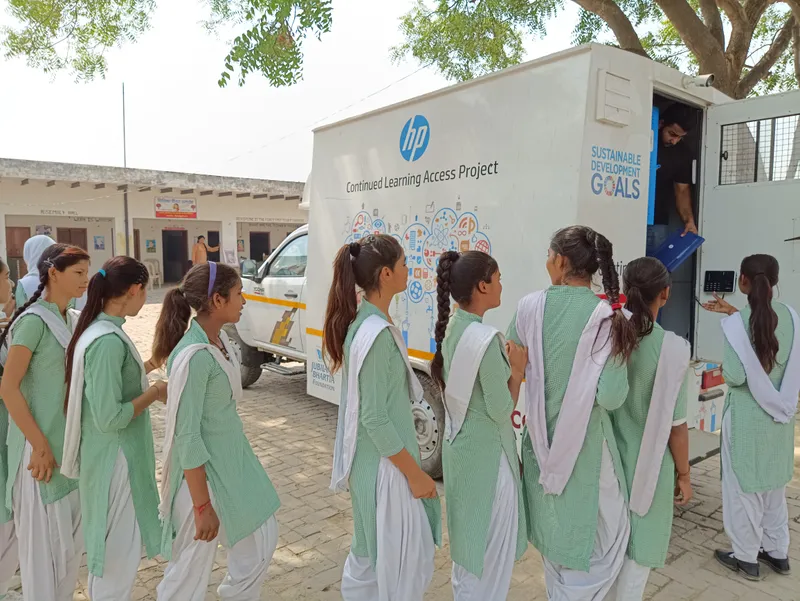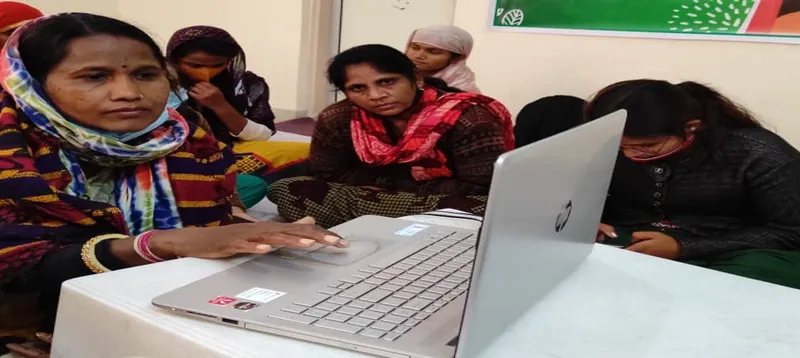NASSCOM Foundation CEO Nidhi Bhasin on gender bias, diversity and more
Nidhi Bhasin is the CEO of NASSCOM Foundation, the social arm of the industry body. Having been in the development sector for over 20 years, she has seen the evolution of the social space in India. In the first of our Women in Leadership series, we speak to Nidhi about diversity, inclusion and more
Do we need more women leaders? Are women natural leaders? NASSCOM Foundation CEO Nidhi Bhasin thinks so.
“Not because I'm a woman myself, but I see it in other women also: I think we are natural leaders. Maybe we are genetically wired or it’s the way girls are brought up—women are excellent at taking responsibility,” says the 46-year-old, who grew up as an Army kid, and counts her father—an army veteran who was a part of the Indo-Pakistan war of 1971—as one of her earliest influences.
According to a 2021 study of women in corporate America conducted by McKinsey and LeanIn.Org, burnout and stress during the pandemic took a heavy toll on women, however, they rose to the moment as stronger leaders and took on the extra work. “Women leaders are stepping up to support employee well-being and diversity, equity, and inclusion efforts,” the report stated. Whether that got its due recognition or not is another story.
Nidhi believes that the COVID-19 pandemic made the world realise the power of technology. She tells HerStory that when the opportunity to lead the industrial body’s social arm came calling in May 2021, she knew this was her chance to do more.
“While COVID-19 made us look at the role of technology, it also made us realise that we are not doing enough! If you want to reach out to the grassroots and the interiors of the country, technology is the strongest tool right now. And what could be better than leading an organisation that represents the tech industry?” she quips.
With a master’s in social work from Delhi University, Nidhi’s career of over 20 years has largely been in the non-profit sector. She gained experience with Concern India Foundation for over 15 years, working her way up from a Programme Manager to Deputy CEO.
A firm believer in women's empowerment and progress, she says the foundation’s three key areas of intervention are digital literacy, skilling and employability, and women entrepreneurship.
“I truly believe that whether it’s about literacy or digital literacy, if you empower a woman, the whole family gets empowered. If we focus on ensuring that our maximum outreach is to women, we will be achieving our SDGs (sustainable development goals) much faster than we think,” she opines.
A majority of beneficiaries across all of the foundation’s programmes, skilling included, are women. “We have seen several new women entrepreneurs learning how to access social media platforms, model their products, and get a great line-up of orders,” she says.
She adds that by building on their digital skills, many women in rural areas have excelled at market linkages and financial literacy. They are also able to showcase their products on technology platforms, becoming more competitive.
The foundation is now operational across the country, and has just launched a programme on ‘aspirational districts’—spreading digital literacy and introducing e-governance programmes in remote areas. “The aspirational district programme is focused on making local women change ambassadors. We are making them digitally literate, and then they will be working in the communities to make sure that the government schemes are accessible to all.”

Students from a rural area in North India receiving laptops through NASSCOM Foundation's outreach programme for online learning.
The glass ceiling
From disability, education, and child sexual abuse, to a project at Tihar Jail to reform prisoners, Nidhi’s 20-year career has exposed her to many social issues. Compared to the corporate sector, she remarks the non-profit sector enjoys the presence of far more women across roles.
She says that as a woman leader, it is a privilege to mentor other women. “If I have an opportunity where I can support other women colleagues, be it entry-level or seniors, then why not?”
Speaking about gender bias in organisations and the largely male-dominated tech industry, Nidhi says she has been to forums and platforms where she has had to make way.

Women learning to use the laptop and the internet during a women's empowerment programme run by the Foundation
“As a woman, you have to show a lot of confidence to make your point, whereas a man can just get into a conversation. For a woman, it becomes imperative to push her way around.”
How does she walk that tightrope of work-life balance? “To that, there is no easy or perfect answer,” she laughs, and continues, “It comes with a little bit of compromise and some sacrifice. Was I there every time for my daughter's important days? No, I was probably there for six and probably not there for four. There have also been times when somebody in the family has been unwell. I think if there is family support, we manage. And life’s never perfect anyway.”
Edited by Kanishk Singh








